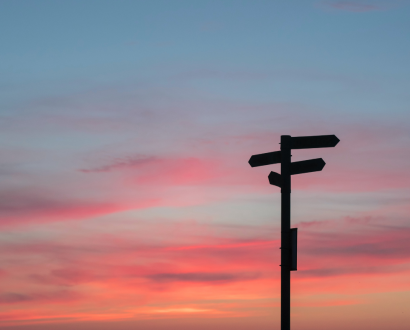Econic Co-Founder: Why saying ‘I don’t know’ has made me a more authentic leader

As a business consultant, I used to fear telling my clients, "I don’t know."
As an expert in helping businesses grow and succeed, I always wanted to have the answers and advice my clients were trusting in me to provide.
While I still desire to have solutions to my clients’ problems, I’ve come to find that this isn’t possible 100 percent of the time. I’ve accepted this and now use this to my own advantage and that of my clients. My focus is on people growth, which results in their business growth.
In my book, Dare to be Naive: Unleash Ripples of Impact in Life and Business, I write about how appropriate vulnerability is a great bridge for trust.
As much as consultants want to help businesses thrive, we have to admit there’s a lack of certainty that comes with each day. This goes for business owners as well. My philosophy is that, in order for leaders to succeed in business, they must first learn to acknowledge and accept the uncertainty that is an inevitable part of life.
Are we designed to be fearful?
"The desire for safety stands against every great and noble enterprise," according to Roman philosopher Tacitus. When you reject the uncertainty of the world, you are guided by fear. Embracing the unknown and unpredictable allows you the freedom to be creative and opens the door to infinite possibilities.
I challenge you to be fear(less) with uncertainty. I say fear(less) because fear is a natural, inherent part of life. Without our amygdala’s powerful fight-or-flight system, early humans (hominins) wouldn’t have lasted long when they came face-to-face with bears, saber-toothed cats and other hominins. As we don’t have dangerous predators charging at us anymore, our amygdala now responds to perceived psychological threats.
This psychological threat can be thought of as an important part of vulnerability. So, how do we manage or control the outcome of a biological response? I take a step-by-step approach.
Four steps to approaching vulnerability

Step 1: Notice the gap
I greatly value the perspective of Joe Gerstandt, who explained that our first thought is to fear is acceptable, as it’s likely from evolution. (You can check out a video of his here where he talks a bit more about it in depth.) It’s our reaction to fear that we must own. Think of that small gap between when your mind tells you something and when you act on it. This gap is what you have control over – but only if you’re conscious of it.
Step 2: Evaluate your choices
When faced with uncertainty in business, we often choose – unconsciously or consciously – to go with what’s safest. This severely limits our choices when we’re met with new experiences. When I say evaluate choices, I’m talking about all choices, even ones you believe are naive or too vulnerable. This will come in handy for the next step towards approaching vulnerability.
Step 3: Question yourself
Once you have choices settled into your awareness, it’s time to workshop them. Ask yourself questions such as:
- Is this absolutely true?
- What do I stand to gain/lose?
- Is this choice based on fear?
- Is this choice an opportunity for growth?
Step 4: Act
The final step to approaching vulnerability is to act on it. What did you discover while making your unconscious, conscious? If you discovered your initial internal response was to protect yourself from potential harm, that’s normal. It’s what you do with that information that’s important. Where did you end up?
Evaluating vulnerability’s place in business
In Dare to be Naive, I dive into the stories of prolific leaders in business and how they used this self-awareness to create unheard-of positive changes to both their environment and business. Why are their stories so surprising? Because it’s not often that you see business owners choosing naivety or choosing to embrace the potential of vulnerability.
Vulnerability, in and of itself, is not a weakness or a crutch unless you allow it to remain dormant, unobserved. Likewise, vulnerability is not a strength if it is not first examined and understood. Dare To Be Naive partly aims to bring the rational part of you (and your business) into better balance with the other important parts of your mind: the intuitive, emotional and spiritual. My goal is to help leaders adapt and evolve – and this process is never linear.
You might be saying, "Vulnerability has worked to my advantage in the past when I wasn’t consciously aware of it." So have many other things you leave up to the unconscious – taking a different route to the office and finding that it worked out because there was a bad accident on your usual path. Consider the unconscious choices you’ve made that have benefited you, but also ponder the greater impact you could have by making a more conscious effort – in life and business. It’s time to make the unconscious, conscious.
My personal relationship with vulnerability
I make my decisions based on the belief that there’s more in this world to trust than to fear.
I know that fear limits me more than it benefits me. By deciding to lead with trust, I’m aware I’ll get taken advantage of one or two percent of the time. But in my experience, it makes the other 98 and 99 percent of life a lot better, as I’ve encountered unexpected business opportunities, relationships and successes through this abundance mindset, trusting naivety.
Do I put my wallet out on the front door step every night? Nope. But do I do a lot of business from just a handshake and provide a level of transparency to the people in our company that makes our accountants and my peers nervous? Yes.
"I don’t know" is no longer a threatening statement to me, nor do I avoid telling my clients this truth if it happens to be the case. Each day is full of uncertainty, whether we want to admit this or not. Instead of fearing vulnerability – the unknown – I choose to acknowledge it. I use it to my advantage to build trust, find deeper meaning, live authentically and embrace living in a world that moves and breathes just like I do.
Joshua Berry, author of Dare to be Naive: Unleash Ripples of Impact in Life and Business (New Degree Press, March 2023), is the Managing Director and Co-Founder of Econic, an innovation, transformation and strategy consulting company and Certified B Corporation. Berry is dedicated to practicing unlearning, identifying limiting beliefs, and shifting business practices.